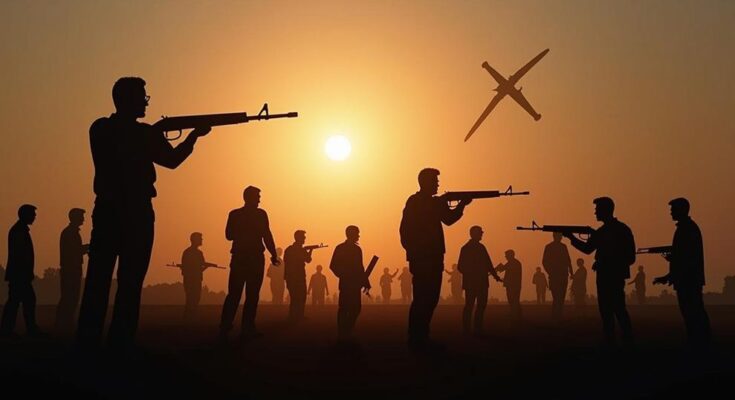In reaction to Iran’s missile strike involving nearly 200 missiles aimed at Israel, both Israeli and U.S. leaders have threatened significant repercussions for Tehran. Israeli Prime Minister Netanyahu and U.S. National Security Advisor Jake Sullivan both emphasized that Iran’s actions represent a major miscalculation. The conflict is set against the backdrop of Israel’s ongoing military operations against Hezbollah in southern Lebanon, continuing the complex and deadly dynamics of the Israel-Gaza war.
In response to the recent firing of nearly 200 ballistic missiles from Iran towards Israel, officials from both Israel and the United States have vowed to impose repercussions on Tehran. Israeli Prime Minister Benjamin Netanyahu remarked, “This evening, Iran made a big mistake — and it will pay for it.” Concurrently, Jake Sullivan, the United States’ national security adviser, indicated that Iran would encounter “severe consequences” following Tuesday’s missile attacks, which were initiated after Israel commenced localized ground operations aimed at removing Hezbollah fighters from southern Lebanon. Israel’s military announced the launch of ground operations in southern Lebanon as tensions heighten along the Israel-Lebanon border. This escalation is part of a broader conflict that has now engulfed the region. The ongoing Israel-Gaza war originated from an unprecedented assault by Hamas militants on October 7, which resulted in approximately 1,200 deaths and numerous civilian hostages taken, including individuals attending a music festival. In retaliation, Israel declared war on Hamas, leading to significant displacements across the region, marking the largest migration crisis since Israel’s founding in 1948. In July 2024, the assassination of Hamas leader Ismail Haniyeh was perceived as an act of aggression by Israel, intensifying the conflict. Moreover, the situation in the Gaza Strip has reached catastrophic levels, as military actions have resulted in tens of thousands of fatalities and severe humanitarian crises, with at least fifty percent of the population suffering from famine-like conditions. Despite calls from Western allies for increased humanitarian aid access to Gaza, Israel has maintained its stringent blockade. The United States continues to actively support Israel amid rising tensions, despite strained relations between Prime Minister Netanyahu and certain U.S. politicians, including President Biden. The U.S. has provided Israel with arms, financial assistance, and crucially has vetoed or abstained on United Nations resolutions concerning cease-fires. The intricate history of the Israeli-Palestinian conflict, rooted in decades of complex territorial disputes and deep-seated mistrust, continues to impact the current situation, marking it as a significant contributor to the ongoing turmoil in the region.
The tensions between Israel and Iran have significantly escalated in the wake of recent military confrontations. Iran’s missile attack appears to be a reaction to targeted operations that resulted in the deaths of high-profile figures from Hamas and Hezbollah, both of which are adversaries of Israel. This latest episode forms part of the ongoing conflict in the broader Middle Eastern context, particularly marked by the fervent hostilities of the Israel-Gaza war, which began with an unprecedented assault from Hamas on Israel. The Israeli military’s further ground operations in southern Lebanon against Hezbollah indicate a multifaceted escalation in hostilities that threatens regional stability.
The recent missile strikes from Iran towards Israel have intensified existing conflicts, prompting stern warnings of consequences from both Israel and the United States. The ongoing military actions in the region, particularly in relation to Hezbollah and the deeper Israel-Gaza war, illustrate an increasingly volatile situation that poses significant risks to civilian populations and regional stability. It remains crucial to monitor developments as the international community grapples with the implications of these escalations while advocating for humanitarian access and resolution to the unfolding crises.
Original Source: www.washingtonpost.com




